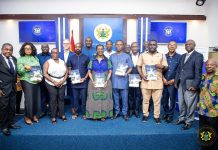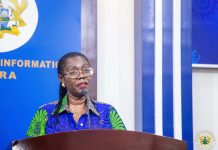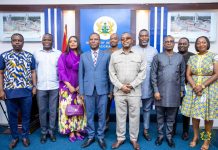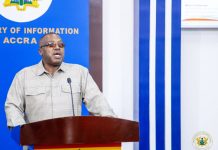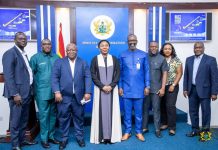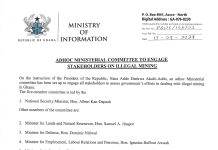African countries must learn best practices from each other and the rest of the world, especially in the areas of education and skills acquisition, in order to prepare adequately for the changing dynamics of the Fourth Industrial Revolution, Vice President Mahamudu Bawumia has stated.
Delivering the opening address at a World Bank-organised Ministerial Meeting on Education for West and Central Africa in Accra on Monday, June 27, 2022, Dr Bawumia said while individual countries were rolling out educational reforms, collaboration would scale up the rate of adoption of such reforms and have a greater effect on their quest to build a strong human resource base.
“We will not be able to deliver change without building and sustaining political momentum in the region. In many of the region’s countries, more efforts are needed to rationalize the governance of education systems to achieve greater coherence, cooperation, and coordination.”
“Indeed, the relationship between socio-economic development and human capital is critical and Ghana’s policies on education access, quality, equity, relevance, skills acquisition and education financing reflect how Ghana is using education as a lever for human capital development and socio-economic transformation”, he pointed out.
The Meeting, which brought together Ministers of Finance and Education from 22 countries representing West and Central Africa, will discuss key findings of the World Bank Africa Western and Central Education Strategy 2022-2025, framed around the strategic themes of finance and governance, tackling learning poverty and foundational skills, technical vocational education and training, and tertiary education and skills.
It will also build a coalition on education and a movement for increased focus on quality education to promote human capital in the Africa Western and Central region; and issue a call for action by Ministers of Finance and Education.
Outlining an extensive list of ongoing reforms in Ghana’s education sector, from reviewing the pre-tertiary education curriculum, reform of Secondary Education focusing on access to Free Senior High school, through establishment of the Commission for Technical and Vocational Education and Training (CTVET) and TVET Service to operationalize the TVET space, to elevation of the minimum qualification for teachers from diploma to degree as well as provision of access to financing of tertiary education in Ghana through the ‘No Guarantor Policy’, Vice President Bawumia called for cross pollination of ideas on ways to make such reforms even better.
“As is the case of several other countries in West and Central Africa, Ghana has introduced several key policies and reforms to strengthen education quality and management across the education sector… Ghana’s education reform agenda can benefit from collaboration and synergy with our regional partners. That is what this conference must explore to spur up the collective growth of the continent because as Helen Keller once said, “alone we can do so little, together we can do so much.”
Commending Ghana for the successes chalked so far in her education reforms, the World Bank Vice President for Western and Central Africa, Ousmane Diagana, said the Bank’s 2022-2025 Education Strategy was designed to meet the needs of the youth of the continent, and assured of his organisation’s continued support for, among others, reducing Learning Poverty – the share of 10-year-olds who are unable to read and understand a short text – which affects more than 80 percent of children across the region, the highest rate in the world.


